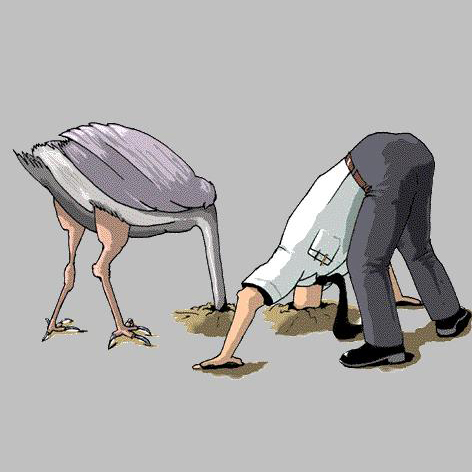Seven Surprising Things That Could Get You Fired, and What To Do About It
-
1. Thinking Outside The Boss
When your leader asks you to think outside the box, what they mean is think outside your box but inside theirs.
Leaders don't always articulate what they are looking for but they know it when they see it, and they know it when they don't. Go ahead and let your creative juices flow! But first probe to clarify expectations: What sort of creativity is sought after - disruptive, incremental or a shift in thinking? What resources are available to do new things? What constraints are there? How much risk is okay? Experimentation? Failure?
-
2. Being a "Boss-strich"
People get new bosses all the time. No big deal, right?
Wrong! Big deal!

Don't put your head in the sand like an ostrich and assume not much will change. Instead, approach it as a completely new situation. EVERYTHING needs to be reassessed. EVERYTHING might change. Set about methodically learning your new leader's priorities, preferences, strengths and pet peeves. What adaptations will make you the best partner you can be?
-
3. A Lack of Offensive Communicating
On average, leaders spend 20% of their time seeking information. This is terribly inefficient. Rather than wait for your leader to ask, take the offensive! Strong followership is about keeping your leader well informed. After all, your leader isn't a telepath able to read your mind, and they don't have a secret crystal ball that lets them know what you are doing at all times, or what else is going on that they need to know about. Excellent communications both raises your personal profile and makes the leadership job that much easier.
-
4. Communicating Like A Leader To Your Leader
Followership communicating is an equally important but different skill from leadership communicating. The purpose of leadership communication is to unleash initiative. The purpose of followership communication is to stimulate the right leadership action. What does your leader need to do with the information you are providing? Make a decision? Get involved? Change expectations? Panic less?
Be clear, candid and to the point.
-
5. A Declaration of Independence
One of the top skills employers seek from job-seekers is self-motivation, independent thinking and the ability to work with little or no supervision. We all know this. But what we know can also be dangerous if done in excess. Leaders aren't looking for people to manage themselves, they are looking for people who are easy to manage. If you have an absentee leader or one who continually cancels update meetings, you have to fight the urge to 'go it alone'. Persist! Without interaction, you can't possibly be on their wavelength and in the best position to support them.
-
6. Suffering From CDD (Collaboration Deficit Disorder)
Gone are the days when being a team player meant just getting along, cooperating and not causing conflict. Today's expectations are higher, different. Today you need to collaborate: to think well with the team and leverage its strengths. Ask yourself, what are all the ways I can add even more value to my team and organization? What disruptions am I causing for others and how can I minimize them?
-
7. Being a Devil's Advocate
Contrary to popular opinion, devil's advocate behavior is a slippery slope to the job netherworld.If you want to have influence and be a true thinking partner, be a decision advocate, not a devil's advocate. This does not mean being a 'yes-man', it does mean 'saying yes and...'. Build on ideas. Build up ideas. Figure out how they could work, rather than why they won't work. Keep your approach and tone positive. Studies show that you need to give at least five times as much positive decision support as critique to be considered effective. And then, when you do critique, use positive language.
